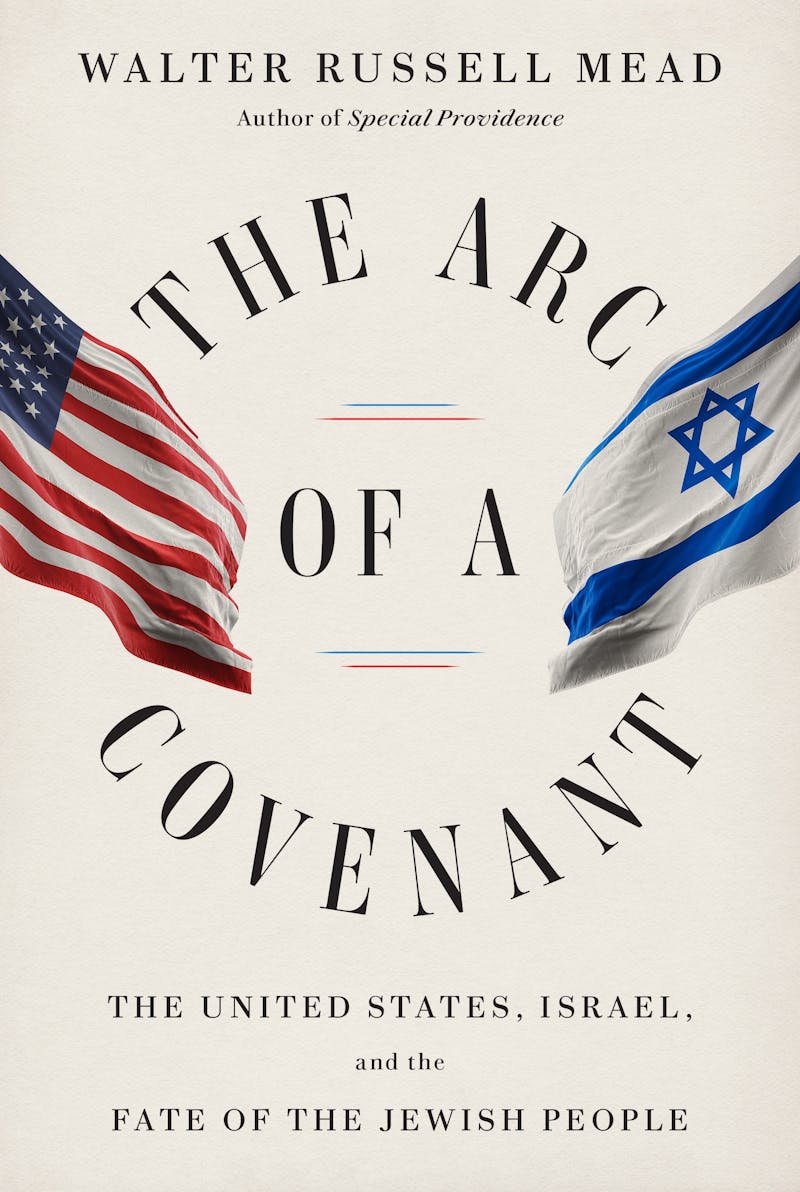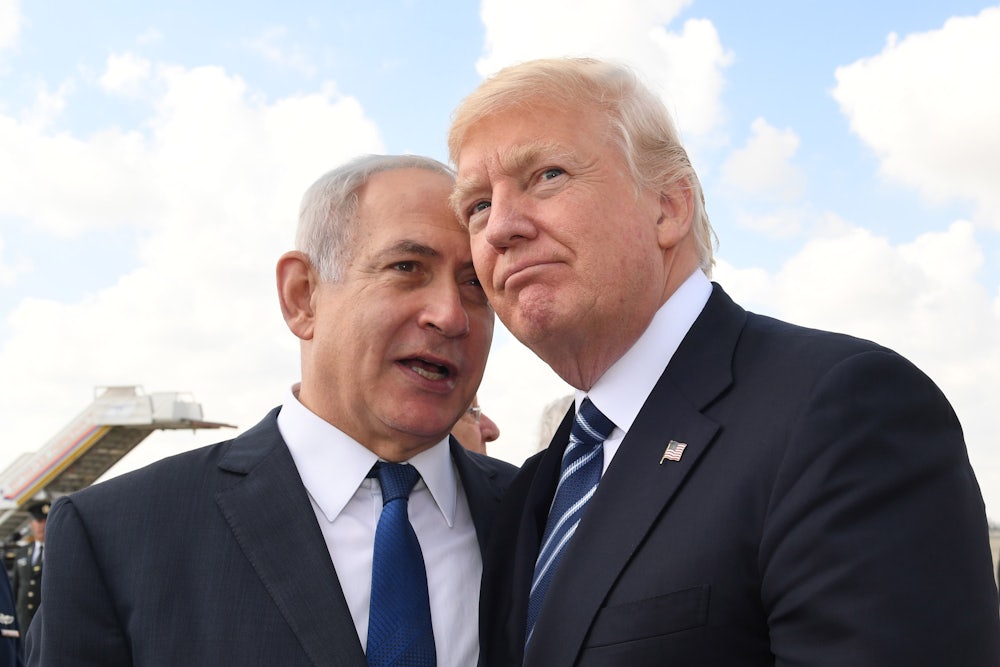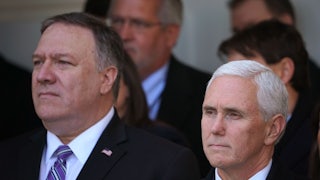In May, Palestinian American
student Nooran
Alhamdan graduated from Georgetown University. A few weeks
before the ceremony to receive her diploma, she learned that United States
Secretary of State Antony Blinken would deliver the commencement address. She
and other students began to think of ways to stage a protest against the United
States’ support for Israel. They decided on a form of “silent protest”: When
the day came, she held up a Palestinian flag and refused to shake hands with
Blinken.
Alhamdan’s principled stand went viral, symbolizing the refusal of Palestinians to submit to their American-sponsored subjugation. And yet, there was something sad about it; the United States’ support for repressive Israeli policies is so ironclad that Palestinians must resort to isolated acts of disrespect to government officials.

What explains this state of affairs? A common argument, one notably made by the political scientists Stephen Walt and John Mearsheimer in 2006, that the United States dependably favors Israel in its foreign policy because of the Israel lobby. Defining the lobby as “a loose coalition of individuals and organizations who actively work to shape U.S. foreign policy in a pro‐Israel direction,” they wrote that it exerted tremendous pressure on Congress, the executive branch, and the broader public debate. The results, in their view, were decades of Middle East policies that harmed the interests of Americans, Palestinians, and even Israelis, who were discouraged from making peace.
Walter Russell Mead started writing his latest book, The Arc of a Covenant: The United States, Israel, and the Fate of the Jewish People, partly to counter this view. A columnist for The Wall Street Journal and a political scientist at Bard College, Mead comes to the subject from the center-right: He is sympathetic to American policymakers’ dilemmas and efforts, believes the alliance with Israel serves the U.S. well, and understates the roles Islamophobia and anti-Arab bigotry play in American life. In a 2007 Foreign Affairs essay, Mead critically reviewed Walt and Mearsheimer’s book. Here, however, he also combats the much more sweeping and offensive theory that powerful, wealthy Jews manipulate the U.S. into serving Israeli interests. This “Vulcan Theory,” as he terms it, is wrong about how foreign policy made is made, the U.S. political process, the relationship between Jews and Christians, and much else.
Instead, Mead argues that the efforts of non-Jews to forge and strengthen an alliance between the United States and Israel have been more decisive than those of Jewish American groups. Spanning nearly 150 years of history, The Arc of a Covenant elucidates the deep cultural, historical, and strategic forces that buttress the United States-Israel relationship. Because Israel’s most influential supporters in the U.S., Mead proposes, have acted often not out of sympathy with the state of Israel on its own terms, but rather out of the American national interest and in ways that accord with their own notions of Jews and Biblical prophecy.
Few Jews lived in the New World before the 1840s, but biblically-minded settlers and revolutionaries in the U.S. in the centuries preceding the Civil War believed they were reviving Old Testament themes. The Puritans in New England believed they were replicating the Exodus of the Jews who fled slavery in Egypt and ventured to the Promised Land. Long before the modern state of Israel existed, a deeply Protestant people in colonies along the Atlantic seaboard imbibed preaching about how Jews possessed a special role in history in general and the Holy Land in particular.
This was all far removed from the experiences of actual Jews, who were few in number in the new colonies. Indeed, following waves of immigration in the nineteenth and early twentieth centuries, American gentiles discriminated against Jews who established communities in the United States, even as they romanticized the Jews they read about in the Bible. While Jewish Americans never suffered the pogroms or state-sponsored antisemitism that erupted in many European countries, they nonetheless were widely excluded in areas ranging from education to real estate.
Still, American Jews before the late 1930s were not passionate for the most part about populating Palestine, but instead eager to continue to build their lives in the U.S. Not until after the Holocaust, when the plight of Jewish refugees in postwar Europe became visible and Jewish settlers demonstrated power in Palestine, did American Jewish support for Israel reach a critical mass. The historian Doug Rossinow has identified 1954 as the year the main elements of what we know as the Israel lobby coalesced, joining forces to respond to international condemnation of a brutal IDF massacre of Palestinian civilians in the West Bank the year before. Only then did Israel begin to gain the currency has it had since in the American Jewish imagination.
In Mead’s telling, notions of Jews dominating the Holy Land have usually been most popular in the United States (and sometimes Britain) among non-Jews. He recounts the Austro-Hungarian journalist Theodor Herzl’s efforts to attract support for a Jewish state in the late 1890s. He had more success among gentiles with delusions of Jewish financial power than he did with his fellow Jews.
Mead sees the same dynamic in the United States, in a petition presented to President Benjamin Harrison in 1891 demanding he push European leaders to convince the head of the Ottoman Empire to allow Jews to create a homeland in Palestine. It was signed by magnates J.P. Morgan and John D. Rockefeller, leading newspaper editors and clergymen, the chief justice of the Supreme Court, and the speaker of the House of Representatives. The fruitless plea remains notable for being opposed by most American Jews at that time.
Similar incidents recur throughout the book, demonstrating the ancient and ongoing enthusiasm among Christians (especially Protestants) for Jews—or rather, the idea of Jews—and for growing the Jewish presence in the Holy Land. The Evangelical Christianity movement that skyrocketed in strength in the 1970 was deeply supportive of Israel as collecting “God’s Chosen People,” even as the leader Billy Graham disparaged Jews privately to President Richard Nixon for allegedly controlling the media and spreading pornography.
“The Zionism that Herzl built into an important historical force was not a movement of Jewish power,” Mead finds, “but a movement that linked the preferences and passions of the gentile world to the needs of the Jewish people, and it was the unique power of Zionism to enlist powerful gentile supporters that made Zionism a power among Jews.”
The most famous instance of American support came in 1948 when President Harry Truman became the first leader in the world to recognize Israel as a state at the United Nations. According to his aide Clark Clifford, Truman’s “own reading of ancient history and the Bible made him a supporter of the idea of a Jewish homeland in Palestine.” Yet the support the United States offered at this point was exclusively diplomatic: the United States declined to send arms or aid to Israel, while the Soviet Union was providing critical weaponry. Mead argues that Truman’s decision was largely motivated by internal party politics in the United States, with Democrats growing fractious amid fatigue with the New Deal and a third-party run by former Vice President Henry Wallace, a strong progressive supporter of the Zionist cause. Truman believed that Israel’s independence was inevitable given the Zionists’ military success in 1947 and 1498, and that being the first leader to congratulate the new state offered him an opportunity to consolidate his power. Only three days later, Joseph Stalin also recognized the state of Israel. This move, too, was self-interested—the Soviet leader wanted to divorce the Jewish state from British control.
Only after Israel’s successful defense in the 1967 War did policymakers in the United States began to see it as an anti-Soviet bulwark. In the 1970s, Congress began distributing massive amounts of aid and weapons to Israel, and it has continued that practice ever since. Mead describes how Israel’s success on the battlefield accomplished more than anything American Jews did to persuade officials in the United States that the state was stable and worthy of support. “As Israel itself became a stronger country and therefore, at least from some perspectives, a more valuable ally, the United States increased military aid to Israel and deepened its commercial and diplomatic relations,” he writes.
Policymakers increased their support for Israel because they believed it was in the United States’ strategic interest, rather than on principle. Evidence of this comes in Mead’s chapters on Richard Nixon and Henry Kissinger. Nixon was an antisemite and Kissinger resented American Jews’ insistence on helping Soviet Jews emigrate. In private conversations with other senior American officials, Kissinger complained that Jews were “as obnoxious as the Vietnamese” and that “if they put Jews into gas chambers in the Soviet Union, it is not an American concern. Maybe a humanitarian concern.” But Nixon and Kissinger felt that Israel was strong and steadily anti-Soviet, unlike some of its neighbors.
In light of the energy crisis of
the 1970s, the American public saw in Israel a small Middle Eastern country being
targeted by many of the same Arab and Islamic leaders who were now withholding
oil from the United States. Once leaders in Iran, Libya, Lebanon, and eventually
terrorists in Al Qaeda put the United States in their crosshairs, the American
public—particularly Republicans—developed a new kind of kinship with Israel. The
sense of Israel as an ally against shared enemies expanded during Ronald
Reagan’s administration, and consolidated during the George W. Bush and Trump
administrations. “The bond with Israel has not only been a hallmark of most
conservative political action for more than a generation; the bond has been a
common tie that helped hold the fractious conservative coalition together,”
Mead writes. This isn’t about a love for Jewish individuals but a love for a
strong, isolated country that embodies a macho Judeo-Christian heritage, is
vengeful and subdues its foes, and practices robust self-defense in the face of
global opprobrium.
While offering Israel its unshakeable support for decades, the United States has also tried to play the role of a peacemaker, hosting talks between Israeli and Palestinian leaders with varying degrees of success. The Arc of the Covenant looks at the Bill Clinton, George W. Bush, Barack Obama, and Trump administrations’ Middle East policies especially closely, and spends a chapter evaluating the failure of successive presidents to solve the Israeli-Palestinian conflict. For any president, helping achieve peace in the land of Palestine would be momentous, but such a task, if it could ever be achieved, would require a level of impartiality that the U.S. has never been able to muster given its closeness to Israel.
Mead primarily blames Palestinian leader Yasser Arafat for rejecting the supposed good deals offered to him in 2000 by Israeli leaders, relying almost exclusively on accounts written by American negotiator Dennis Ross. But Mead has less to say about how the peace agreements of the 1990s led to even worse conditions in the occupied territories for Palestinians. His perspective is not callous toward Palestinian suffering, and he shows why the Palestinian cause arouses such feelings of anger and solidarity among Arabs and Muslims worldwide. He notes that under a two-state solution, any Palestinian state would be only a “rump state,” far weaker than Israel and only semi-sovereign given the power disparity between the two countries.
The Middle East continues to consume enormous amounts of time and resources on the part of American officials, often to their frustration. U.S. power still matters to people in the region, often to their frustration. The value of Israel in the minds of policymakers and Christian leaders has been decisive for decades and is ongoing. Understanding that the Israel lobby is only a secondary factor in influencing U.S. policy becomes especially vital as Israel continues to grow more illiberal and right-wing. Americans who still maintain that supporting Israel is both morally imperative and in the U.S. national interest have a weaker case than ever, even if change is unlikely to come soon.






